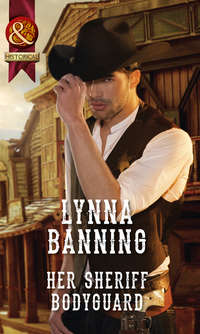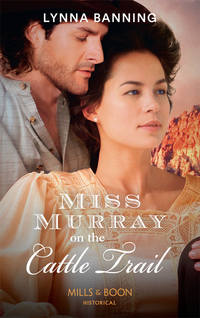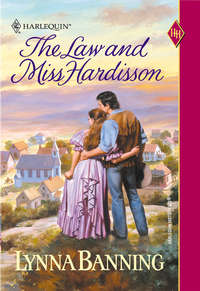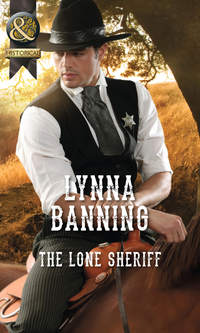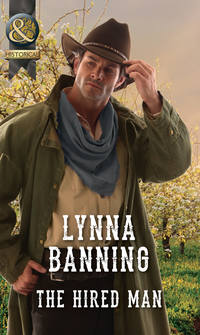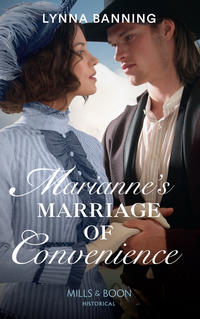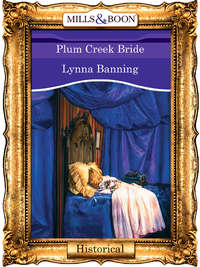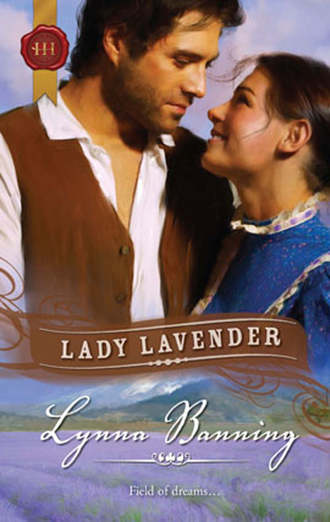
Полная версия
Lady Lavender
Rooney patted the neck of his mount and surveyed Wash with narrowing black eyes. “A better question is what’re you gonna do about it?”
Wash blew out a long breath. “If I knew the answer to that, maybe I would have slept some last night.”
Sykes had ruled out Scarecrow Hill because the railroad owned no right-of-way there. Wash had to get Green Valley surveyed, then get Miz Nicolet off that land before the clearing crew arrived. Problem was, she’d set to farming on land she didn’t own. Most likely she thought she owned it; probably paid that cabin owner $2.50 an acre and he gave her a ginned-up deed and skedaddled before the law caught up with him. It had happened before.
He watched gray smoke puff lazily from the stone chimney into the summer air. Poor misguided woman. Her entire crop of whatever that purple stuff was would have to be ripped out. It looked like a nice, neat little farm. Pretty spot, too, with walnut and sugar maple trees covering both sides of the steep hills that enclosed the valley, and the sun bathing her crop in a glow of golden light.
His belly tightened. He hated to see things destroyed, whether it was Reb trains or ammunition dumps or Georgia plantations. Or little farms, like this one.
He’d try not to think about it.
Rooney nudged Wash’s elbow and pointed. The French woman was out beside the cabin, hanging up laundry on a sagging clothesline: four white flounced petticoats and three girl’s pinafores and…
He sucked in a breath. Leaping lizards…underwear! Lacy chemises and ruffled white underdrawers so small he could bunch up a dozen and stuff them in his pocket.
He shut his eyes to block out the sight, steeling his mind against the sensual tug of those delicate lace-trimmed garments and the woman he imagined wearing them. His groin heated anyway. Gritting his teeth he worked to squash the feelings he’d kept buried all these years.
Abruptly he wheeled the black gelding away. “Come on, Rooney, let’s ride back into town and get some whiskey. The railroad can wait.”
But the railroad couldn’t wait, and Wash knew it. All the way back to town he cursed the problem unfolding before him.
“Ain’t ’xactly her fault,” Rooney observed when they had settled themselves at the Golden Partridge’s polished wood bar.
“Widow lady on her own, speakin’ a foreign language. Coulda been took by a swindler easy.”
Wash snorted and sipped his whiskey. “Maybe you should mind your own business.”
Rooney paused long enough to empty his own glass. “Or maybe you should mind your business and get that lady off the railroad land before the sheriff arrests her for trespassin’.”
“I don’t think the sheriff would do that.”
“Somebody’s gotta do it. That’s why Sykes’s railroad company is payin’ your salary. Think about it. Why else would they hire a lawyer with courtroom smarts to supervise railroad crews?”
God knew he didn’t want to think about it. He especially didn’t want to think about those slim bare legs flashing through that purple field.
Late afternoon shadows stippled the trail as Wash guided General back to Green Valley. He didn’t fancy returning, but Rooney was right: he had his orders.
When the path narrowed and began to slope downward, he fought off an attack of belly butterflies. Pretty ironic, to have lived through Laura’s betrayal and then the War, the Yankee prison in Richmond and Sioux-Cheyenne skirmishes near Fort Kearney only to find his entire frame laced up with nerves over one lone woman. A woman who had no legal claim to the land she sat on.
Now on a level with the thick, waist-high field of bushy growth, he reined General to a stop and dismounted. It had to be done; he’d best get it over with.
Dropping the reins where he stood, Wash patted the animal’s neck and made his way toward the small cabin at the far end of the valley. The greenery on either side of him was so close to the uneven footpath his elbows brushed against the purple fronds. A pleasant spice-like scent rose. Lavender! That’s what she was growing. Looked damn nice in the hazy sunlight, like an ocean of blue and purple waves.
He raised his head and glimpsed a movement on the cabin porch. Miz Nicolet had seen him.
He didn’t slow his pace until he was maybe twenty yards away, and then suddenly she pulled a rifle from behind her skirt and aimed it at his heart.
Wash put his hands in the air. “It’s me, ma’am. The jackrabbit hunter, remember?”
She said not a word, and he kept walking toward her, the slight hitch in his gait more noticeable now. When he was close enough to see the dark curls escaping the blue kerchief tied over her hair, he stopped.
“You do remember me, don’t you?”
Her mouth opened. “Oui,” she snapped. “I remember you. What do you want?” She moved the gun barrel an inch to the right. If she pulled the trigger at such close range, she couldn’t miss. His heart would be splattered all over the path.
“I’d like to talk to you, ma’am. About your farmland.”
The teal-green eyes narrowed. “I own this land. It is not for sale.”
“Oh, I don’t want to buy it…well, yes, I do, in a way, but let me explain. You see—”
“You are trespassion—trespassing,” she corrected. “I ask you to leave.”
“I can’t do that, ma’am. See, I’ve been ordered to—”
“Go away,” she interrupted. “Or I will shoot.”
Frantically Wash racked his brain for some words in French. Bonjour? No, that didn’t fit. Au revoir? Not yet. Not until she had heard him out. Comment ça va? That would do.
He pushed his stiff lips into a smile, but it was dicey with that rifle trained on his shirt buttons. “Comment ça va?”
Her gaze widened. “I am quite well,” she replied, her voice tightening. “But I am not patient. Go!”
He waited three heartbeats. “My name’s Washington Halliday, ma’am.”
He took another halting step forward, and then another, until the toes of his boots stubbed the bottom step. At each step she adjusted the angle of the gun to accommodate his position. He was so close now he could see those odd flecks of gray in her eyes.
Wash drew in a long breath and began to recite the first French words that came to mind. “O, claire de lalune…” Damn. He wished he hadn’t switched his long-ago college language class to Latin.
She frowned and tilted her head, obviously puzzled.
“Mon ami…” On the word ami he charged straight up the single step toward her and knocked the gun barrel upward. It went off with a crack, the shot skimming off into the trees where a chatter of birds broke the quiet.
She gave a little cry and Wash grabbed the gun out of her frozen grasp and checked the chamber. She backed away from him until he clunked the rifle flat on the porch beside her, and then she stopped, one hand covering her mouth.
“Sorry I had to do that, ma’am. But it’s hard to talk sense if you’re dead.”
Her throat convulsed in a swallow.
“Talk about what?” Her face was white as limestone.
“Ma’am, you got any whiskey? I think you need a shot.”
“Non. No whiskey.”
“How about tea? Coffee?”
All at once her legs gave out and she sat down hard on the porch, her skirts fluffing up around her. “Café,” she said. Her voice sounded shaky. “Inside. Mais, je—I cannot…”
He strode past her into the tiny cabin and headed for the potbellied stove. The place was as neat as his mother’s parlor, he noted. Nothing out of place except for a child’s exercise book on the kitchen table, propped between a sugar bowl on one side and a white ceramic cream pitcher on the other.
“Coffee,” he muttered. His own hands were shaking by the time he found the coffee mill and a small bag of coffee beans. He chunked up the fire, brewed the coffee extra strong and found two patterned china cups. He grabbed the bubbling pot off the stove and carried it through the doorway.
She was still sitting where he’d left her. Trying to control her trembling hands, she reached for the cup, then quickly set it down on the porch and blew on her fingers. “Hot,” she explained.
“Couldn’t find any saucers,” he said more calmly than he felt. He settled himself not too close beside her.
“There are no saucers. They were broken when I came in the wagon from New Orleans.”
“Drink it black?” He had a hard time getting the words out; being this close to her made his heart beat in an odd, ragged rhythm.
Her forehead wrinkled. “Pardon?”
“Do you want milk or sugar? Du lait? Sucre?”
Her frown lifted. “Ah, non.”
A long, awkward silence fell. He let her drink her coffee while he gazed over the purple fields and tried to gather his thoughts. She’s sure not gonna like what I’m going to tell her.
A heavenly scent invaded his nostrils—probably the lavender. He leaned imperceptibly toward her and drew in another breath. No, it was her. Soap and something spicy.
Wash gulped his coffee and tried to think of how to tell her about the railroad.
Chapter Three
Jeanne could scarcely swallow the hot coffee the tall man had poured into her grandmother’s china cup, but it was not because it burned her tongue or tasted like scorched peppercorns. Her throat was so tight she could not even swallow her own saliva.
He’d come to talk about her farm, the only mainstay she’d found in five years of widowhood, outside of her daughter. And outside of her handed-down family knowledge about growing lavender. How precarious her life seemed at times. Whether she and Manette managed in this untamed, rough land depended solely upon her skill as a farmer. Their survival hung by a thin stalk of lavender.
Gingerly she lifted her cup from the porch and tried again to sip it, mostly just to gain some time. It was lukewarm now, but still the tightness closed her throat. Strange, but he seemed as ill at ease as she did. Three times his mouth opened to form a word, and three times his jaw snapped shut with a decisive click. Mon Dieu, what did he wish to say?
Once more his lips opened and this time she couldn’t help but notice how nicely shaped they were—not too full but… She calmed an odd flutter in her chest…sensual.
This time some of his words tumbled out. “I’m sure glad you didn’t shoot me, ma’am.”
“I meant to,” she said in a quiet voice. “I do not like strangers.”
“How long have you been farming out here, Miz Nicolet?”
She looked up sharply. “How is it you know my name?”
“I asked around in town.”
For an instant she forgot to breathe. “Why?”
He hesitated. “Well, because it seems like…” He smiled at her, his teeth white against his tanned skin. “Seems like you’ve settled on land you don’t own.”
“But I do own it, monsieur. I have the deed to prove it.”
He slurped down a mouthful of coffee. “Problem is, Miz Nicolet, you’ve been swindled.”
“Swindled? What is that?”
“Hoodwinked. Gulled.”
“Hood—?”
“To put it straight, ma’am, you’ve been cheated.”
“Ah, non. I paid all my money for this land, and Monsieur Lavery shook my hand and brought the deed to show me.”
“I’m sure he did.”
The man’s usually rich voice sounded odd. Did he not believe her? “Yes,” she reiterated, “he did.”
The man chuffed out a long breath and stared out over her lavender fields. “I don’t exactly know how to tell you this, Miz Nicolet, but—”
“Then do not.” Her hand shaking, she lowered her half-empty cup onto the porch beside her. “Please, do not say anything that will make me feel sad about what I did. Please, Monsieur…?”
“Halliday. Wash. Short for Washington, but just call me Wash.”
Jeanne followed his gaze as it skimmed over her lavender crop. “It is beautiful in the afternoon light, is it not?”
He nodded without lifting his eyes from the fields.
“This valley, it reminds me of the land near Narbonne, where I grew up. My mother grew lavender to sell at the market. And now I do, as well.”
“I can see that, ma’am. You have a fine crop here.”
“I let it grow as it will, and each summer the ground is covered in purple. I leave some of the stalks uncut until they go to seed.”
The air was sharp with the spicy fragrance. Each year her lilac-tinted sea had pushed farther and farther up the canyon sides. “It makes a small income for Manette and me. I feel safe here.” Up until now.
For an instant Wash closed his eyes. He sure understood safe. “It’s almost dusk, ma’am. I’ve got to get back to town, but before I go, could you show me your deed for the place?”
She could not answer.
“Ma’am?”
“I can show you, yes. But not today. The deed is at the bank in Smoke River.”
He turned his face toward her. His eyes were nice, gray like her grandfather Rougalle’s, with fine sun lines crinkling the corners. Her heart stuttered at the expression in their depths. Such sadness. She did not like that look.
Liar! You like it very much, even if it is sad.
Something about this man’s eyes made her chest hurt. She wished he would smile once more.
“How about meeting me at the bank tomorrow morning?”
She looked at him so long he wondered if she’d heard him.
She turned her head and looked into his eyes, saying nothing for a good two minutes. At last she dipped her kerchief-swathed head in the slightest of nods.
“Very well. Tomorrow.”
Wash unfolded his long legs, stood up and stepped down off the porch. “Eleven o’clock.” He touched the brim of his brown Stetson, then turned away and strode toward General where he patiently waited at the end of the footpath. His hip hurt like hell from squatting on the porch, but he worked to keep his gait smooth.
The eleven o’clock sunlight on a midsummer morning in Smoke River revealed a number of town folk briskly crisscrossing the dusty main street on their way to buy feed or pick up their mail. The grocer, Carl Ness, was sweeping the board walkway in front of his displayed bushel baskets of ripe peaches and bloodred tomatoes. He hummed a tune as he worked his broom down as far as the barbershop where he stopped abruptly, leaving an obvious contrast between the barber’s dirty, leaf-strewn frontage and the grocer’s clean expanse of walkway.
To the left of the grocer’s sat the Golden Partridge, quiet at this hour but not empty. The minute Carl stashed his broom, he ambled toward the saloon where Wash knew he’d sit nursing a beer and glowering at Whitey Kincaid.
Whitey Kincaid was the barber. Watching Carl from the sheriff’s office across the street, Wash laughed out loud. What was known as the “Boardwalk Battle” had been waged since he’d been a boy attending the one-room schoolhouse twenty-some years ago.
The struggle between the two men had started years ago, when Whitey’s prize mare had stumbled into Carl’s carefully stacked boxes of potatoes and fresh-picked corn and broken its leg. Whitey had put the horse out of its misery and then come gunning for the grocer. The sheriff arrested both of them, Wash recalled, and three days in the same cell at the jerry-rigged jailhouse had fanned the animosity into an unspoken war both were determined to win.
Wash gazed at the saloon and ran his tongue over his dry lips. No time for a drink; Miz Nicolet should be riding into town any minute and he had to keep his head clear. He sure didn’t relish telling the French lady how easy it was to get the wool pulled over a foreigner’s eyes out here in the West.
The sound of hooves pulled his attention to the far end of the street; sure enough, it was the lavender lady herself. Her young daughter rode in front, holding a sheaf of dried lavender fronds on her lap.
The woman rode astride, her sky-blue skirt rucked up revealing black leather boots, an expanse of ruffled white petticoat, and the flash of one bare calf. His mouth went dry as a dustbin.
He strode up the street to meet her. “Morning, Miz Nicolet.”
“Bon jour, Monsieur Washington.” She drew the skinny mare up in front of the redbrick bank building next to the hotel.
Wash plucked Manette off the horse and carefully set her on the ground, then reached up for her mother. No stirrup, he noted. How the hell did she mount, anyway?
He closed his hands around her waist and felt a jolt of heat dance up both arms. When she laid her hands lightly on his shoulders, the warmth swirled into his chest. He lifted her down and found he couldn’t bring himself to release her. Her high-collared white shirtwaist swelled over her breasts and nipped into the waistband of her skirt.
She glanced at him from under the wide brim of a straw hat banded with a blue ribbon. He didn’t see her eyes for more than a half second, but her mouth had gone white and tense.
“Manette, take the lavender over to Monsieur Ness.”
But Manette was absorbed by a scraggly dandelion poking up between the wood planks of the boardwalk and the grasshopper clinging to the flower head.
“I’ll take it,” Wash volunteered. He needed to be away from her to regain his equilibrium. “Meet you at the bank.”
Jeanne scarcely stammered out her thanks before he had gathered up the sheaf, bound in twine, and started for Ness’s Mercantile & Sundries.
She turned to her daughter. “Manette?” But just now Manette was looking for bugs under the walkway. She would probably eat one or two, as she was insatiable in her curiosity, and very often hungry, as well. She squinted at something cradled in her tiny palm, a grasshopper. And then whoop! It was gone.
Like life, Jeanne thought. Like youth. You blinked and it was over.
Inside the bank the air was cool, the light dim. Jeanne stepped up to the teller’s window. “I wish to see my safe box, if you please.”
The blond youth behind the iron grate glanced up at her, then focused on Wash, who was suddenly standing at her shoulder. “Sure thing, Mrs. Nicolet. Just step this way.”
Manette settled herself on a bench to wait, and Wash followed Jeanne through the grille and toward a private room.
“I heard all about you, Colonel Halliday,” the boy said as he led the way. “About gettin’ shot and being in prison and—”
“Take my advice, Will. Don’t join the army.”
“Pa wouldn’t let me anyway. Says I have to be a banker, like him.”
“Not a bad life,” Wash said.
“Not very much excitement, bein’ stuck in a bank all day.”
Wash grinned. “Excitement is highly overrated.”
Jeanne’s breath stopped. When he smiled, the perpetual frown on his face lifted. He was not so frightening, now. Alors, he was almost handsome. Or would be if his smile ever reached his eyes. Surreptitiously she studied his profile while the boy returned and plunked the small steel box onto the polished desktop.
“Merci, William.”
The boy unlocked the box. At the click, she leaned forward, plunged her hand inside the receptacle and drew out a rolled-up parchment tied with ribbon.
“Here is my deed,” she said with a note of triumph. “See for yourself.”
Wash unrolled the document and scanned the words. He’d known it all along, but his heart sank anyway. “It’s like I said, ma’am. You’ve been swindled. This deed is fake.”
Her face turned white as cheese. “How do you know this?”
“Well, look here, ma’am.” She stepped up beside him and studied the document he held out.
“There’s supposed to be two signatures, buyer and seller. Only got one here. Yours. Doesn’t prove a thing.”
She stared up at him. “You mean it is false?”
“’Fraid so, ma’am.” He breathed in her scent and his fists clenched.
Her whole body went rigid. “You mean I do not own my farm? My lavender?”
Wash wished he could drop through the floor. “The Oregon Central Railroad owns it.”
“But I paid money to Monsieur Lavery. I paid him all the money I had!”
“I’m real sorry, Miz Nicolet. You’re not the first person to get taken in like this, but I know that doesn’t help much.”
“You mean I have nothing? Nowhere to live? No land? No lavender to sell to Monsieur Ness at the mercantile?”
He nodded.
Tears shimmered in her eyes. “But what will I do? I must care for Manette.”
His fists opened and closed. “Maybe I could get your money back. I work for the railroad, see, and—” He broke off at the look on her face.
Her tears overflowed, spilling down her pale cheeks like fat droplets of dew. Wash’s throat ached. Dammit, watching her cry ripped up his insides. He closed his hand about her elbow.
“Come on, Miz Nicolet. You need some coffee.” He folded the deed into her hand and ushered her out past the teller’s window. Manette scrambled off the bench where she’d been waiting, took one look at her mother’s face and flung her small arms around her skirts. “Don’t cry, Maman. Please don’t cry. It makes me feel bumpy inside.”
Absently Jeanne smoothed her hand over her daughter’s red-gold hair. “C’est rien, chou-chou.” The words sounded choked.
Manette tipped her head up and pinned him with a furious look. “Did you hurt my mother?”
Wash flinched at the question. Of course he’d hurt her mother. He’d yanked every bit of security out from under this woman in less than three minutes. He released Jeanne’s elbow and knelt before the girl.
“If I did hurt your mama, it was not on purpose.”
“Make her stop crying, then.”
“I would if I could, honey. I think maybe some coffee might help.” He gestured toward the hotel across the street. “Do you think that’s a good idea?”
“Yes. And some ice cream, too?” She was out the door like a nectar-hungry bee.
Wash rose to his feet with a grimace, fighting the urge to wrap the sobbing woman in his arms. Gently he took Jeanne’s elbow. Her entire body trembled like wind-whipped aspen leaves.
“Oh, hell, I’m sorry.” He grasped Jeanne’s upper arm and guided her out onto the boardwalk and across the street to the hotel dining room.
She gave no sign that she had heard his words.
Chapter Four
A plump older woman in a checked apron glanced up as Wash and Jeanne entered the River Hotel dining room with Manette dancing after them.
“Morning, Rita. Got any coffee?” The woman’s face darkened at the sight of Jeanne. “Always got coffee for you, Colonel. Made fresh, too.”
The waitress shot another look at Jeanne, instantly dug a handkerchief out of her pocket and pressed it into her hand. “Here, dearie. You just cry it all out of your system.”
Wash settled Jeanne at a corner table and lifted Manette onto the chair between them. The girl leaned toward him. “Why is Maman crying?” she whispered.
Wash flinched. “Because…well, because she’s just had some bad news.”
“Can you make it go away?”
“I wish I could.” Never in his life had he felt this helpless. He didn’t like the feeling one bit.
The waitress sailed off to the kitchen and returned with two delicate cups of steaming coffee. One she placed before Jeanne; the other she brought around the table to Wash and leaned in close to his ear.
“What’d you do to her, anyway?” she muttered.
“Railroad wants her land,” he explained, keeping his voice low.
“And I hear you’re workin’ for the railroad.” Rita sent a speculative glance at Jeanne. “A man’s always at the root of a woman’s troubles,” she sniffed.
Wash waited until Rita had retreated into the kitchen. “It’s almost noon. Are you hungry?”
She shook her head, blotting at her eyes with the damp handkerchief.
“She is hungry,” Manette whispered. “She let me eat all of her breakfast.”
“Well, then, perhaps you both would join me for lunch?”
“Oh, non,” Jeanne protested.
“Oh, yes! Manette’s bright-eyed grin made Wash chuckle. He’d order a steak—two steaks—and a big bowl of chocolate ice cream; maybe it would ease the sick, guilty feeling in his gut.
Jeanne spoke not one word during the meal, but he noticed she ate every ounce of her steak, right down to the bits of gristle. Wash cut up half his meat for Manette, but found he couldn’t swallow even his own portion.


